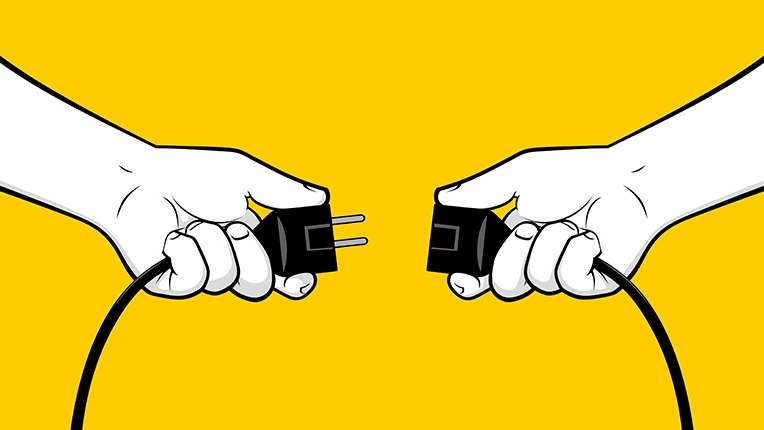
Introduction
The question of whether bodies corporate can disconnect water and electricity of owners in arrears with their levies was very recently considered by Wilson, AJ of the Gauteng Local Division High Court in Lion Ridge Body Corporate v Alexander; Lion Ridge Body Corporate v Morata; Lion Ridge Body Corporate v Mukona and Another (17074/2022; 18106/2022; 19220/2022) [2022] ZAGPJHC 713 (21 September 2022).
This controversial matter has recently been decided on again in the Gauteng High Court in Body Corporate Ashwood Manor v Macgregor (027545/2023) [2023] ZAGPJHC 1153 (13 October 2023).
Facts of the case
The applicant in this matter applied under Uniform Rule 49(1)(c) for reasons for an order that was granted on 31 August 2023.
The Judge decided to give their reasons in respect of the relief which was not granted because the Body Corporate has an interest in what its rights are vis a vis non-paying members.
Relief sought
The matter concerned a Body Corporate’s attempts to recover arrear levies from one of its members who owns a section in Ashwood Manor a sectional title scheme (the respondent). In addition, the Body Corporate attempted to obtain an order to disconnect the respondent’s electricity supply. Amongst the arrear amounts were charges for unpaid electricity which became a cost the remaining members had to subsidise.
Order granted
On the day the matter was heard only the Body Corporate appeared, represented by counsel. The Judge granted three of the prayers sought; namely:
- payment of the outstanding arrears;
- interest on that amount; and
- costs on the terms sought by the applicant.
The Judge did not grant the disconnection of electricity prayer, which had been formulated as follows:
“3. In the event that the Respondent does not effect payment as per paragraph 1 and 2 within 10 days of granting of this order, the Applicant is authorised to engage the services of an electrician at a reasonable fee, registered with the Electrical Contractors Association of South Africa, in order to disconnect the electricity supply to the Respondent’s section being: section[…], Holkam Road, Paulshof, Ext 52, Gauteng. The electricity supply shall remain disconnected until payment of the aforesaid amount has been effected.”
Reasons given
The reason for this is that no legal power was advanced by the Body Corporate to grant such a form of relief to a private body. In this regard I have followed the reasoning of Wilson J in Lion Ridge Body Corporate v Alexander and Others (17074/2022; 18106/2022; 19220/2022) [2022] ZAGPJHC 666 (21 September 2022), where it was held that:
“Neither the Sectional Titles Act nor the standard Management and Conduct Rules promulgated under it empower a body corporate to interfere with a member’s utility supply, and Lion Ridge does not allege any other common law or statutory power to do so. It follows that Lion Ridge has not identified the source of its alleged right to disconnect or limit the respondents’ utilities. Critically, Lion Ridge does not allege that it has adopted a specific rule, in terms of section 10 of the Act or section 6 of the Regulations, that empowers it to disconnect its members’ utilities to recover outstanding levies.”
The judge decided that these two cases are exactly the same, and that because that case was not incorrectly decided, it follows that this form of relief was not competent and hence could not be granted. The Judge acknowledged that this may be frustrating for the Body Corporate and its members, but that their remedy is to adopt a rule to this effect.
Would the CSOS allow a scheme rule that lets bodies corporate disconnect power to unit owners who are in arears?
The pertinent question is what is the legal nature of sectional title scheme rules? Section 10(1) of the Sectional Titles Schemes Management Act 8 of 2011 (“the STSM Act”) states that:
“A scheme must as from the date of the establishment of the body corporate be regulated and managed, subject to the provisions of this Act, by means of rules.”
Professors CG van der Merwe and GJ Pienaar (the academic thought leaders, in the law of sectional titles in South Africa) agree that rules made by bodies corporate are “the product of the legislative power of an autonomous statutory association.” This principle was entrenched in Regulation 6(1) made under the STSM Act states that:
“Rules, as prescribed and as amended by a body corporate in accordance with section 10 of the Act, must be considered to be and interpreted as laws made by and for the body corporate of that scheme.”
The trustees must exercise the functions of the body corporate, and they do so subject to the provisions of this STSM Act, the rules and any restriction imposed or direction given at a general meeting of the owners of sections.
In order to establish whether a rule that allows the body corporate to shut off the electricity of an owner whose levies are in arrears we need to test the rule against the provisions of the Constitution of South Africa, which is the supreme law of the Republic. No law or rule of a body corporate can be contrary to any provision of the Constitution. The Judge stated that the relief that Lion Ridge claimed has constitutional rights implications which include:
- the right against arbitrary deprivation of property (section 25(1) of the Constitution, 1996);
- the right to sufficient water (section 27(1)(b) of the Constitution, 1996),
- the public law right to receive electricity from a municipality, even where the electricity is transmitted through an intermediary such as a landlord or a body corporate (see Joseph v City of Johannesburg 2010 (4) SA 55 (CC), para 47), and
- the right of access to adequate housing (section 26 of the Constitution, 1996).
Relief limiting these constitutional rights is plainly incompetent if it is not authorised by law. In these circumstances the form that law is a rule of the body corporate. The Judge stated that the instrument authorising the relief, where it exists, may itself have to conform to constitutional requirements designed to protect the rights implicated.
The next step is to test the rule against the requirements in the STSM Act. In this regard section 10(2) of the STSM Act states that:
“The rules must provide for the regulation, management, administration, use and enjoyment of sections and common property, and comprise … management rules… and conduct rules…”
A rule that allows the body corporate to shut off the electricity of an owner whose levies are in arrears will fall within the scope as it regulates owners in their use of sections and common property.
Section 10(3) of the STSM Act sets the requirement that the management or conduct rules “must be reasonable and apply equally to all owners of units.” There needs to be a rational basis for the rule, and the application of the rule should be based on what is appropriate and fair in the circumstances of the scheme and for the members of the body corporate. This argument is reiterated in section 10(5)(b) of the STSM Act, where it is stated that the chief ombud must not approve any rule for filing unless, he or she is satisfied that it is reasonable and appropriate to the scheme. In my view a rule that allows a body corporate to approach a court for an order to disconnect the electricity of an owner in arrears with their levies will be reasonable and apply equally to all owners of units. The effect of not allowing the body corporate to entrench such a provision in their scheme rules would mean that the body corporate would not be entitled to approach courts for this particular form of relief, and would be limited obtaining to orders for the repayment of the arrear levies and interest. In circumstances where the owner does not have the funds to repay the debt, the members of the body corporate would be forced to continue to subside the recalcitrant unit owner’s electricity expense.
Section 10(4) of the STSM Act states that the management or conduct rules bind the body corporate and the owners of the sections and any person occupying a section. In terms of section 10(5) of the STSM Act new and amended rules come into operation on the date that the chief ombud issues a certificate approving the rules or on the opening of the sectional title register for the scheme, whichever date is the latest.
Section 10(6) of the STSM Act obliges the body corporate to have the scheme’s rules available for inspection at trustee and owner meetings, and to deliver copies of the rules to all owners and occupiers of sections. The sectional title scheme management stakeholders, including the chairpersons and trustees, owners, occupiers, managing agents and legal advisers, will all have to be familiar with the content of the scheme rules and know how to interpret them.
Sectional title scheme rules are therefore a form of legislation. The rules must be considered to be designed to achieve a particular purpose. In analysing where such a rule should be allowed we should apply the interpretive tool know as mischief rule – which looks at what mischief the law or rule is meant to remedy, and prefers a meaning that achieves that objective. This interpretive tool would lead to the conclusion that the avoidance of non-payment of levies together with the prevention of subsidisation by paying members is the mischief that is sought to be avoided.
There are also a number of additional presumptions in regard to the intention that underlies a rule. It is presumed, for example, that the rule is intended to advance the community’s best interests. There are also presumptions against absurd results and harsh, onerous, unjust, inequitable or discriminatory treatment.
Finally, the principle of stare decisis should also apply in the case of judicial (or CSOS) interpretation of a rule. The fact that it was decided in both the Lion Ridge case as well as the Ashwood Manor case that the body corporate must adopt a specific rule, in terms of section 10 of the STSM Act or section 6 of the Regulations, that empowers it to disconnect its members’ utilities to recover outstanding levies. The rule serves as the source of the body corporate’s right to disconnect or limit an owner’s utilities. It is important to remember that the rule empowers the body corporate to do so, but that is only the first rung in the ladder – the body corporate will still need to approach the court to obtain such an order. The trustees cannot disconnect electricity supplies without either a statutory right to do so, or an order of the court authorising the disconnection of the electricity.
Disconnecting the electricity is an act of “taking the law into your own hands” in an attempt to force owners to pay outstanding levies is referred to as an act of spoliation and is illegal.
The illegal disconnection of electricity to a unit by a body corporate was dealt with in the High Court in the case of Queensgate Body Corporate v Claesen (A3076_98) [1998] ZAGPHC 1 (26 November 1998). The court confirmed the scope of spoliation as was summarised in Nino Bonino v De Lange 1906 TS 120 at 122 where Innes, CJ said:
“It is a fundamental principle that no man is allowed to take the law into his own hands. No one is permitted to dispossess another forcibly or wrongfully and against his consent of the possession of property whether movable or immovable. If he does so the court will summarily restore the status quo ante and will do that as a preliminary to any inquiry or investigation into the merits of the dispute. It is not necessary to refer to any authority upon a principle so clear.”
In this case, the body corporate’s counsel argued that the act was taken in accordance with the scheme’s rules, duly made under the Sectional Titles Act 95 of 1986. This argument was held to be without merit. The court said:
“The clause giving the appellant the right to cut off the electricity of any unit owner who is in arrears with his or her levies is clearly contrary to the common law. It constitutes nothing but the power to interfere with such a person’s right to use the existing electricity supply. The instant case is a fortiori example of spoliation. … no court would have had the power to deprive any holder of his or her electricity supply in the circumstances the appellant has done. It is a clear act of spoliation and there was no consent valid in law to such an act.”
The CSOS have also held that trustees in sectional title schemes do not have the legal right to terminate or reduce electricity services because an owner is in arrears with their levies.
Therefore, in conclusion it is my view bodies corporate are not legally entitled to disconnect an owner’s electricity without following due process. That due process requires two steps:
- A valid scheme rule legally adopted and approved by the CSOS empowering the body corporate to approach court for an order that the electricity can be disconnected in circumstances where an owner fails to pay their levies.
- Approaching and obtaining a court order for the disconnection of the recalcitrant owner’s electricity.
Written by Dr Carryn Melissa Durham
November 2023







![Case discussion on SS Glen High v Kruger NO ((2023/055133) [2024] ZAGPJHC 1059 (10 September 2024)](https://b2659803.smushcdn.com/2659803/wp-content/uploads/2024/10/OIP-300x200.jpeg?lossy=1&strip=1&webp=1)




